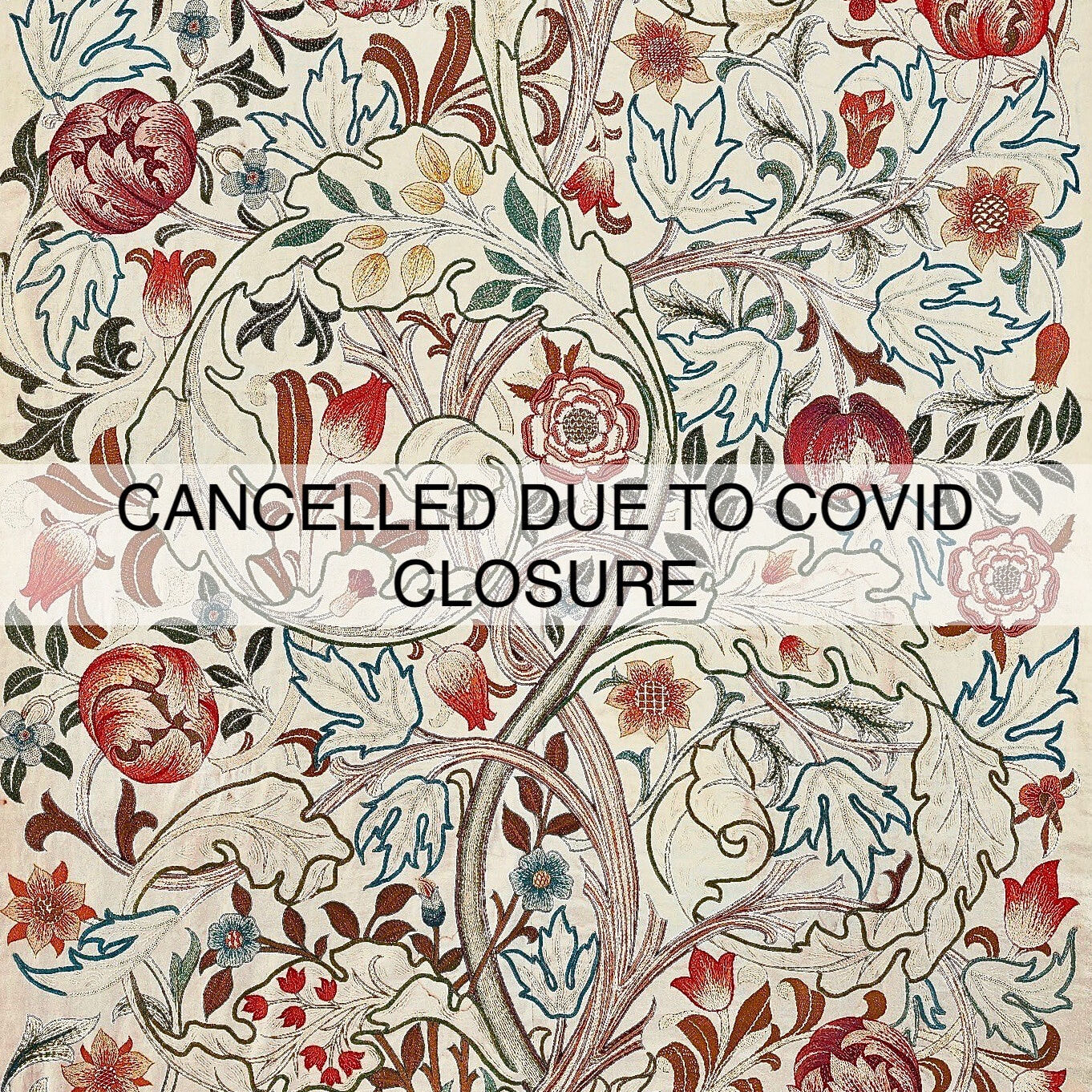FABRICATING THE WORLD | WILLIAM MORRIS (1834–96): revolutionary textile designer and arbiter of taste with Dr Susan Scollay
Wednesday 8 Apr 2020, 10:00 AM – 11:30 AM
William Morris (1834–1896) was a tireless and prolific designer and producer of textiles, tapestries, stained glass, furniture and more. Inspired by nature, historic interiors and by the decorative arts of the Middle East, he reinterpreted the flowers of the English countryside to produce a decorative vocabulary that transformed British design in the late-nineteenth century. His early textiles were initially more likely to be worked in wool rather than silk, although his later embroideries used naturally-dyed silk threads on linen and were widely admired for their elegance. As an advisor to the forerunner of the Victoria and Albert Museum in South Kensington, he played a significant role in promoting handcraft, good design and ‘authenticity’ in art – qualities he saw as the antithesis of the increasing industrialisation and commercialisation of the production of domestic textile furnishings.
DR SUSAN SCOLLAY is an independent art historian specialising in Islamic art and culture and in historic textiles. She is a contributing editor to HALI, the prestigious, London-based journal of carpet, textile and Islamic art, and is a fellow of The Royal Asiatic Society of Great Britain.
Susan has lectured at The Johnston Collection since 2008 and in 2010 was guest curator of FLUID BORDERS: Ways of Seeing Oriental Rugs. FABRICATING THE WORLD | A Survey of the Global History of Textiles continues a series of lectures especially convened by Susan Scollay for TJC.
detail of embroidered hanging with William Morris ‘Acanthus’ design, circa 1890. Silk embroidery on linen collection of the Art Gallery of South Australia
SOLD OUT This event is currently at capacity. If you wish to be added to the waitlist, please email visitorservices@johnstoncollection.org or call The Johnston Collection on (03) 9416 2515 and we will contact you if places become available.
About TJC
Explore
Contact
VISIT
See our VISIT page for hours and directions
BY PHONE
+61 3 9416 2515
BY POST
PO Box 79, East Melbourne VIC 8002
ONLINE
General enquiries
Membership enquiries
Shop
Donation enquiries
Subscribe to E-Newsletter




